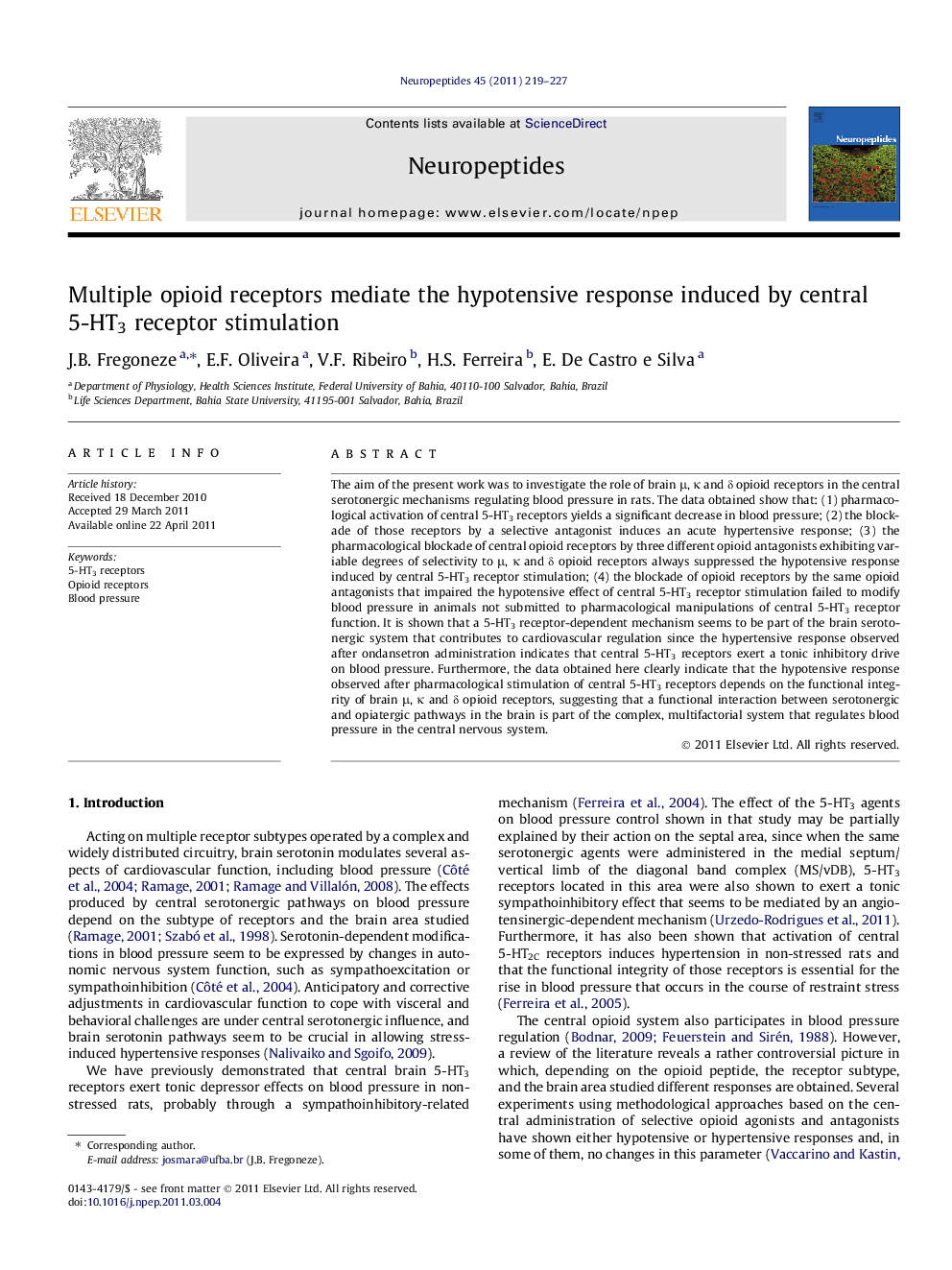| Article ID | Journal | Published Year | Pages | File Type |
|---|---|---|---|---|
| 2808347 | Neuropeptides | 2011 | 9 Pages |
The aim of the present work was to investigate the role of brain μ, κ and δ opioid receptors in the central serotonergic mechanisms regulating blood pressure in rats. The data obtained show that: (1) pharmacological activation of central 5-HT3 receptors yields a significant decrease in blood pressure; (2) the blockade of those receptors by a selective antagonist induces an acute hypertensive response; (3) the pharmacological blockade of central opioid receptors by three different opioid antagonists exhibiting variable degrees of selectivity to μ, κ and δ opioid receptors always suppressed the hypotensive response induced by central 5-HT3 receptor stimulation; (4) the blockade of opioid receptors by the same opioid antagonists that impaired the hypotensive effect of central 5-HT3 receptor stimulation failed to modify blood pressure in animals not submitted to pharmacological manipulations of central 5-HT3 receptor function. It is shown that a 5-HT3 receptor-dependent mechanism seems to be part of the brain serotonergic system that contributes to cardiovascular regulation since the hypertensive response observed after ondansetron administration indicates that central 5-HT3 receptors exert a tonic inhibitory drive on blood pressure. Furthermore, the data obtained here clearly indicate that the hypotensive response observed after pharmacological stimulation of central 5-HT3 receptors depends on the functional integrity of brain μ, κ and δ opioid receptors, suggesting that a functional interaction between serotonergic and opiatergic pathways in the brain is part of the complex, multifactorial system that regulates blood pressure in the central nervous system.
